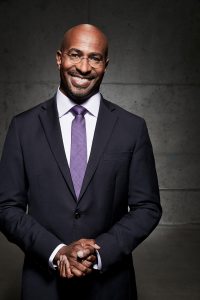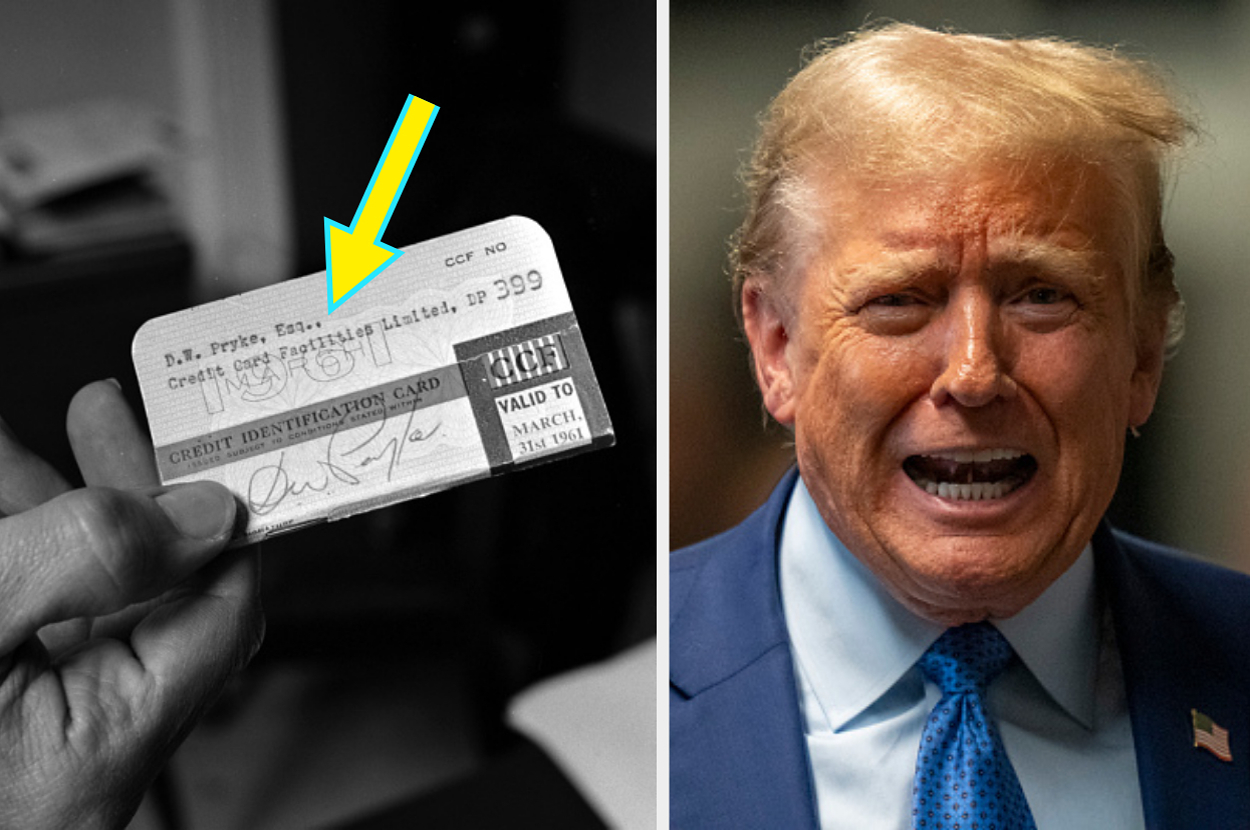Two years after Van Jones received $100 million from Amazon founder Jeff Bezos as part of a surprise philanthropic initiative, the CNN host reveals exclusively to Us Weekly how he’s investing the “miracle money” in innovative approaches designed to disrupt poverty and the prison industry in Black and brown communities.
“It felt like winning the lottery, except I never bought a ticket,” Jones, 54, tells Us.
Throughout his 30-year career, Jones has founded and led four not-for-profit organizations engaged in social and environmental justice, including the Ella Baker Center for Human Rights, which promotes criminal justice reform; Color of Change, which works for racial fairness; Green for All, which lifts people out of poverty through green job training and job creation, and Dream Corps, which promotes innovative policy solutions.
Jones described getting the phone call in 2021 from the richest man in the world to be the recipient of the Courage and Civility Award was a “transformative moment.”
Other stars who’ve received the award — which aims to honor those who have “demonstrated courage” and tried to be a unifier in a divisive world, Bezos has said — include chef Jose Andres and music icon Dolly Parton.
“I was always the person asking for a $5,000 grant, a $50,000 grant,” said Jones, who has worked with Dream.Org, Village Capital and American Family Insurance Institute to support businesses in the justice innovation space. “I never, never thought I’d get a $1 million grant, let alone $100 million. And it gave me the opportunity for the first time to really sit back, think, what could I do that would make a bigger difference?”
For Jones, who has 10 years to invest the money, “I knew immediately I wanted to disrupt these systems that have been holding underestimated communities back. I knew I wanted to do something to disrupt the for-profit prison system, to disrupt the systems that put a lot of pollution in our communities and lead to poverty.”
Jones invested in Philadelphia-based non-profit Beat The Block, a paid training program that works with men ages 18 to 24 to aid them in accomplishing their personal and professional goals.
“We found an unbelievable program [Beat The Block] that was incentivizing peace on the streets by going to folks who were hanging on street corners, getting in trouble and saying, ‘We will pay you for a 100 days to get off the street corner [and] come up with a plan for your life,’” he explained. “My theory now is that the financial incentives to do bad are very high in a lot of the communities I care about and the financial incentives to do good are very weak. That’s what I want to go after.”

“If you want to change the outcomes, you’ve got to change the behaviors,” Jones continued. “If you want to change the behavior, you’ve got to change your financial incentives. For instance, negative people will pay kids in our community to shoplift en mass and sell drugs. Positive people don’t pay our kids to do anything. Why aren’t the positive people willing to pay kids to act?”
Jones said out of the 58 young people who participated in Beat The Block, 88 percent got jobs, 57 percent started their own business and 100 percent registered to vote.
“These are the hardest to employ young people,” he said. “That’s a miracle.”
The political commentator, who’s a leading social justice activist, also turned his financial focus to helping 10 people — many of them formerly incarcerated — who’ve created businesses with the purpose of helping prisoners get back on their feet when they’re released.
“What if we could create an ecosystem that meant people could make money helping people stay out of prison and helping people get on their feet when they came home?” Jones asked. “What if instead of having an incarceration industry, you had a decarceration industry?”
And the result? These companies are flourishing.
Untapped Solutions was founded by Andre Peart, who’s using his justice-tech platform to offer professional networking technology tools to connect former inmates with service providers and employers.
“[The] app is using AI to find quickly the places that would at least consider hiring you,” said Jones. “You’re decreasing the amount of time you’re wasting and increasing your success rate.”
Another justice innovator, Rasa, is a legal tech company spearheaded by attorney Noella Sudbury that’s on a mission to make the process of clearing a record simple and affordable.
“Getting your records expunged in the few states where you can get your records expunged can be a life-changer. But it costs so much money,” said Jones.
Sudbury built an app where instead of spending $3,000 to $5,000, the process only costs $500.
“[It] means a lot more people can get their records expunged, which means they can get a job, which means you’re breaking that revolving door back into prison,” Jones added.
Jones also partnered with CodePath, a company with a mission to create the most diverse generation of engineers, CTOs, and founders by delivering industry-vetted courses and career support centered on the needs of Black, Latino, Indigenous, and low-income students.
“In these tough neighborhoods, education is a way out. That’s how my family got out of poverty. That’s what I focus on with my kids,” said Jones, who’s a father of three. “But you’ve got to educate kids in the right stuff. And technology is everything now. So if we are not educating the next generation of Black, brown and underestimated kids in technology, they’re going to be left behind.
“Maybe some of those kids who are going to come out as CodePath graduates might go on to be the next [Tesla and SpaceX founder] Elon Musk, they might go on to be the next [former Facebook Chief Operating Officer] Sheryl Sandberg.”
Dr. Topeka K. Sam cofounded the newly launched personal financial management platform FRSH, dedicated to helping people who have historically not had access to modern banking products and services. Built for the justice-impacted community, the mobile app includes a bank account, debit card, and access to health benefits.
“The fact that Van was given the opportunity to distribute $100 million to anything that he cared about speaks volumes to who he is and the work that he’s done to date,” Sam told Us.
“For us, it’s been life-changing. My life mantra is to whom much is given, much is required. And so you have to pay it forward,” added Sam. “For us we know how difficult is it for people to reenter so through all of our support we are making sure that we are able to contribute stipends to folks who are leaving prison in their accounts so they’ll have something that they can start off [with] and really have a fresh start.”
As he continues to distribute the funds over the next eight years, Jones has been “encouraged” by the investments he’s made so far and has a clear focus in mind.
“You’re actually helping people,” he said. “You’re shrinking crime, you’re shrinking the prison system, you’re shrinking the public burden and cost, you’re growing opportunity [and] you’re using entrepreneurship to do it.”
“I’m trying to do path-breaking stuff maybe nobody else would be willing to take a chance on,” Jones continued. “We want every penny to make a miracle if we can. We’re really trying to do stuff that if this works, it could create a whole different system.”












